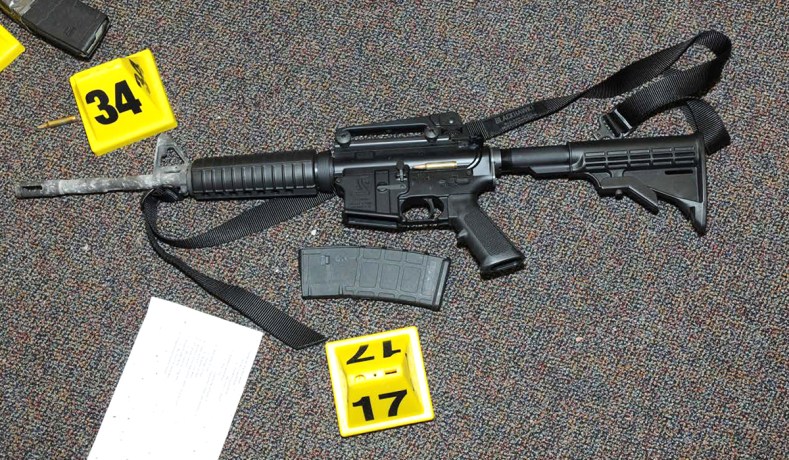With Tuesday’s order from the U.S. Supreme Court, attorneys for the plaintiffs will be able to test whether a gun company can be held liable for how it markets a firearm that is later used in a crime. READ MORE
SOURCE: NPR, Bill Chappell, et al.
The Supreme Court has denied Remington Arms Co.’s bid to block a lawsuit filed by families of victims of the Sandy Hook school shooting. The families say that Remington should be held liable. Remington manufactured the Bushmaster AR-15-style rifle that Adam Lanza used in the shooting.
In a decision that was announced Tuesday morning, the court opted not to hear the gun-maker’s appeal. The justices did not include any comment about the case, Remington Arms Co. v. Soto, as they turned it away.
Remington had appealed to the highest federal court after the Connecticut Supreme Court allowed the Sandy Hook lawsuit to proceed in March. In recent court filings, Remington says the case “presents a nationally important question” about U.S. gun laws — namely, how to interpret the 2005 Protection of Lawful Commerce in Arms Act, which grants broad immunity to gun-makers and dealers from prosecution over crimes committed with their products.
The families first filed their lawsuit in December 2014, saying the Bushmaster rifle never should have been sold to the public because it is a military-style weapon. They accuse Remington of violating Connecticut’s unfair trade practices law when it “knowingly marketed and promoted the Bushmaster XM15-E2S rifle for use in assaults against human beings.”
While the suit initially centered on a claim of negligent entrustment — or providing a gun to someone who plans to commit a crime with it — the case now hinges on how Remington marketed the gun.
The 2005 federal law that shields gun companies from liability has several exceptions — including one allowing lawsuits against a gun-maker or seller that knowingly violates state or federal laws governing how a product is sold or marketed.
In the case’s first major test, the Connecticut Supreme Court ruled in a 4-3 decision that Remington cannot be held liable for simply selling its AR-style Bushmaster XM15-E2S rifle. However, they also ruled that the Protection of Lawful Commerce in Arms Act includes an exception that allows the lawsuit to be brought against the company’s marketing practices.
“Congress did not intend to immunize firearms suppliers who engage in truly unethical and irresponsible marketing practices promoting criminal conduct,” the court said. “It falls to a jury to decide whether the promotional schemes alleged in the present case rise to the level of illegal trade practices and whether fault for the tragedy can be laid at their feet.”
At trial, Sandy Hook families cited examples of what they believe are “unethical, oppressive, immoral, and unscrupulous” advertisements that extol the “the militaristic and assaultive qualities of the rifle.” Furthermore, they argued, the Sandy Hook shooter was “especially susceptible to militaristic marketing” due to his aspirations of being in the military.
In filings with the U.S. Supreme Court, the Sandy Hook families say Remington “published promotional materials that promised ‘military-proven performance’ for a ‘mission-adaptable’ shooter in need of the ‘ultimate combat weapons system.’ ” They also accuse the company of fostering a “lone gunman” narrative as it promoted the Bushmaster, citing an ad that proclaimed, “Forces of opposition, bow down. You are single-handedly outnumbered.”
Another source cited comments from Alan Gottlieb, founder of the Second Amendment Foundation. Gottlieb: “This suit is just plain wrong and should never have been allowed to proceed.” Gottlieb called that rationale “absurd” at the time.
“Did the advertising even remotely suggest that the Bushmaster is best for murdering people?” Gottlieb asked. “That’s a stretch of credulity worthy of surgical elastic. There is no evidence the killer was driven by any advertising whatsoever. This is an affront to the First Amendment as well as the Second. Even hinting that the killer was motivated in some way by an advertising message is so far out in the weeds that it may take a map for the court to find its way back.”
Now that the U.S. Supreme Court has declined to take up Remington’s appeal, the case will return to a lower court in Connecticut.









